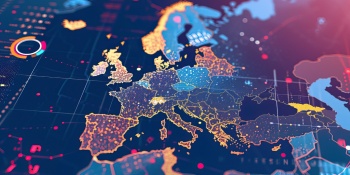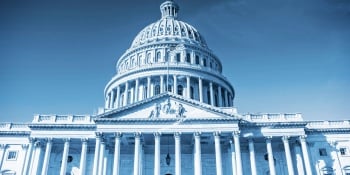Published: 07.02.2023

The World Health Organization is continuing work on the so-called "anti-pandemic treaty. The Intergovernmental Negotiating Body - INB, appointed for this purpose, has published another draft of the document, to take the form of a convention, agreement or other WHO international instrument in the future, with the aim of pandemic prevention and preparedness. Although the draft is still only a prototype for a future agreement and many gaps have been left, already in this form it proposes solutions worth noting. Among other things, the document emphasizes the central role of the WHO, and even proposes giving the Director General the right to declare a pandemic. In addition, while the principle of sovereignty is identified as one of the guiding principles of the document, it comes with a condition - countries have autonomy in shaping health policy, provided they do not harm their own people or other countries.
The document is expected to form the basis of discussions at the fourth INB meeting, which will begin on February 27. The contents of the draft were drawn up based on a previous conceptual document and on the basis of discussions held at the third meeting of INB members, which included delegations from member states.
WHO's central role
As in the conceptual version, the Preamble to the document emphasizes the WHO's role as the guiding and coordinating body for international health activities, in pandemic prevention, preparedness, response and reconstruction of health systems, and in gathering and generating scientific evidence, as well as, more generally, fostering multilateral cooperation in global health governance. WHO's competence in this area is also highlighted twice later - similar content appears in Article 4, titled "Guiding principles and rights," and then in Article 15, "Global coordination, collaboration and cooperation." It is worth noting that in the latter provision, it is additionally proposed that it is the WHO Director-General who is equipped with the right to declare a pandemic. In addition, it was indicated that the agreement also applies to health systems at the national and regional levels.
Regardless of the assessment of the appropriateness and effectiveness of centralized management of the health systems of the 194 countries (that's how many members WHO has at the moment) - potential signatories to the agreement - it is worth noting that in most of the positions presented during the international public consultation of the document, the centralization of the coordination of future health emergencies was criticized.
Principle of sovereignty of states
Although the first words of the Preamble emphasize the sovereignty of individual States Parties in dealing with public health issues, especially pandemic prevention, the rest of the document carries this principle with the condition. States have the sovereign right to determine and manage their approach to public health, particularly pandemic prevention, preparedness, response and restoration of health systems, in accordance with their own policies and legislation, provided that actions within their jurisdiction or control do not cause harm to their peoples and other states. This raises questions as to whether, how and to what extent a state's sovereignty to decide on public health, both during and outside of a pandemic (since the document defines coordination powers also outside the pandemic period), can be limited in case it "causes harm to the public or other states." At the same time, the drafters - at least at this stage - have not defined how the said harm is to be understood.
Fight against disinformation
The document also includes a chapter on the signatories' commitment to promote pandemic and public health knowledge, under which States Parties will be required to increase scientific knowledge, public health and pandemic awareness among the population and counter false, misleading or disinformation, including by promoting international cooperation. To this end, states are recommended, among other things, to conduct regular social media analyses to determine the prevalence and profiles of disinformation, which will contribute to the preparation of communication strategies to counter disinformation and so-called "fake news. Although the phenomenon of disinformation in social media - or on the Internet more broadly - is on the rise, the experience of the COVID-19 pandemic, during which some experts were marginalized in the public debate simply because they did not share the position of the majority and proposed alternatives to the accepted ways of countering the pandemic (at least partially correct, as the passage of time has shown) has shown that, in the name of countering disinformation, there can be censorship of free scientific debate on ways to combat the spread of infectious diseases. What is particularly important when introducing such regulations is to approach the problem rationally and correctly identify its sources.
Costs
Possible ratification of the document will also involve financial expenses for the parties. Countries are to plan and provide adequate financial support, in accordance with their budgetary capabilities, to strengthen pandemic prevention, implement national plans, programs and priorities, and strengthen health systems. The parties also pledge to allocate in their annual budgets no less than 5 percent of their current health expenditures to issues related to pandemic prevention and health system repair, particularly to improve and maintain adequate capacity and activities to achieve universal health coverage. In the future, they are also to allocate a certain percentage (not yet indicated in the draft) of GDP for international cooperation and assistance on pandemic prevention, particularly for developing countries, including through international organizations.
Treaty bodies
In order to effectively implement the treaty provisions, under its provisions, it is proposed to establish a Governing Body, made up of two members: The Conference of the Parties (COP), which would be the sole decision-making body, and a body of an administrative nature - the Officers of the Parties (Officers of the Parties).
As a policy-setting body, the COP has the authority to regularly review (every three years) the implementation of the document and decide on its effective implementation. It is composed of delegates representing the States Parties. It convenes regular sessions of the Governing Body and adopts its internal rules of procedure. The Officials of the Parties, on the other hand, will serve as the administrative body, consisting of two chairpersons, four vice-chairpersons and two rapporteurs, elected by the COP for a term, the length of which the project proponent has not yet determined.
While the two aforementioned bodies, are to be comprised exclusively of individuals with the legitimacy of national governments, it is also planned to establish a Consultative Body (devoid of decision-making power, but aimed at providing advice and technical input into decision-making processes), which, due to its composition, lacks such strong legitimacy. In addition to delegates representing the parties, it is to include representatives of the United Nations and its specialized agencies, as well as states that are members or observers of the Organization, even though they are not signatories to the treaty. Moreover, by formal request, representatives of any body or organization, national or international, governmental or non-governmental, private or public sector, who are "qualified in matters covered by the treaty" may also participate in the Consultative Body's work.
The content of the document under review is not final, and the model presented will be discussed by member states at the upcoming fourth meeting of the Intergovernmental Negotiating Body. Nevertheless, it was drawn up on the basis of the discussions held at the previous meeting of member state delegates, and therefore at least represents the perspective of state governments towards the shape of future international cooperation on health policy.
Weronika Przebierała - director of the Ordo Iuris Center for International Law
SIGN THE PETITION AGAINST THE WHO TREATY - LINK

23.05.2025
We are currently engaging with think tanks and political parties across the continent to collaboratively develop a detailed counter-proposal to the centralist, anti-national, and anti-democratic vision of the European Union promoted by the European Parliament and President Macron.

19.05.2025
• The 78th World Health Assembly, the deliberative body of the World Health Organization, begins today in Geneva.

16.05.2025
On 13 May 2025, James Daniel Jordan, Chairman of the Judiciary Committee of the United States House of Representatives, together with four other members of the Committee, addressed a letter to Michael McGrath, European Commissioner for democracy, justice and the rule of law. The letter inquires how the European Union intends to respond to the actions of Donald Tusk’s government.

15.05.2025
• The European Democracy Shield, an instrument designed to guarantee the EU’s resilience against hybrid attacks and external interference, is currently being developed within European Union institutions.